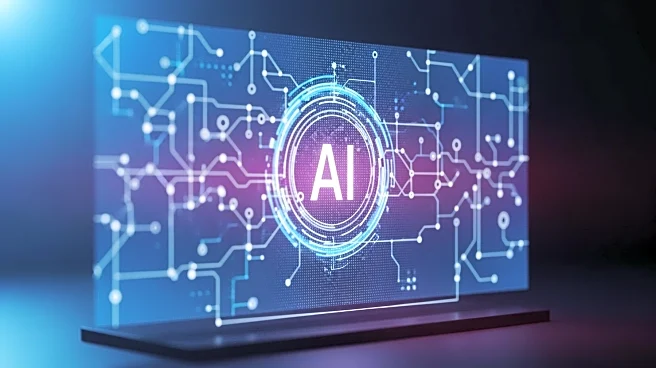What's Happening?
Elon Musk, CEO of Tesla and founder of xAI, recently shared a video generated by Grok Imagine, a tool from his company xAI, on his social media platform X. The video, posted at 4:20 am EST, features an animated woman on a rainy street saying, 'I will
always love you,' in a synthetic voice. This post, along with another featuring actress Sydney Sweeney in a similarly AI-generated context, has drawn significant attention and mixed reactions from users on the platform. Some users criticized the video as being emotionally detached, while others commented on the broader implications of AI-generated content in personal and social contexts. Notably, author Joyce Carol Oates critiqued Musk's online presence, suggesting a lack of engagement with cultural and personal interests.
Why It's Important?
The use of AI tools like Grok Imagine by high-profile figures such as Elon Musk highlights the growing influence of artificial intelligence in media and personal expression. This development raises questions about the authenticity and emotional impact of AI-generated content, especially when used in personal or romantic contexts. The reactions to Musk's posts underscore societal concerns about the role of AI in human relationships and communication. As AI technology becomes more integrated into daily life, it challenges traditional notions of creativity and emotional expression, potentially affecting industries ranging from entertainment to social media.
What's Next?
The continued development and use of AI tools like Grok Imagine may lead to further exploration of their applications in various fields, including entertainment and personal communication. Stakeholders in technology and media industries might need to address ethical considerations and user concerns about AI-generated content. Additionally, public discourse around AI's role in society is likely to intensify, prompting discussions on regulation and the balance between innovation and ethical responsibility.
Beyond the Headlines
The incident with Musk's AI-generated video also touches on broader cultural and ethical issues. As AI becomes more capable of mimicking human interactions, it raises questions about the nature of relationships and the potential for AI to replace or augment human connections. This could lead to shifts in how society perceives authenticity and emotional engagement, with long-term implications for social norms and cultural values.















